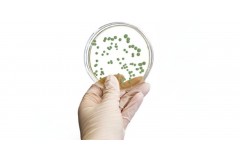What is needle mesotherapy?
Needle mesotherapy is a non-surgical method of injecting a prescribed dose of a given substance (such as the vitamins, minerals, hyaluronic acid) directly into the skin. Mesotherapy achieves its therapeutical results by prompting the skin to self-regenerate. Thanks to this, the cells' metabolism is increased, the fibroblasts are stimulated to produce collagen and elasticin, and the subcutaneous microcirculation and lipolysis are boosted. The procedure utilizes sterile cocktails of 3-4 active substances. The cocktail ingredients depend on the patient's individual skin issue.

How often should the procedure be repeated?
The effects of mesotherapy are visible after a series of procedures repeated throughout 2-4 months. In the first two months, it is advised to perform the procedure once every two weeks. Then, in order to maintain the effects of the treatment, the procedure should ideally be repeated once every six months.
What side effects can occur after the procedure?
Directly after the procedure, the skin is reddened and slightly swollen. It is a normal skin reaction to puncturing. There is also a chance of small bruises occurring.
Is this painful?
The procedure is preceded by an application of an anesthetic. This minimizes the unpleasant sensations and secures the patient's comfort throughout the procedure.
What are the indications for mesotherapy?
Needle mesotherapy is a perfect solution when one needs to moisturize, nourish and rejuvenate the facial and cleavage skin. It is also great, however, for the skin of the hands. When applied to the scalp, it reduces hair loss. It can also be used to treat cellulite, reduce fat tissue (injection lipolysis), minimize the symptoms of photoaging and endogenous aging.
How do I prepare for the treatment?
For one week before the scheduled procedure, it is advised to apply a vitamin K-rich substance to the skin. This seals the endothelia of the blood vessels and prevents internal bleedings and inflammation. If one takes aspirin, one should stop taking it two weeks prior to the procedure.
What are the contraindications?
• Pregnancy and lactation
• Diabetes
• Skin inflammations
• Allergy to the ingredients of the substances used in the treatment
• Taking anticoagulant medication
• Cancer diseases
• Liver diseases (in case of injection lipolysis)




